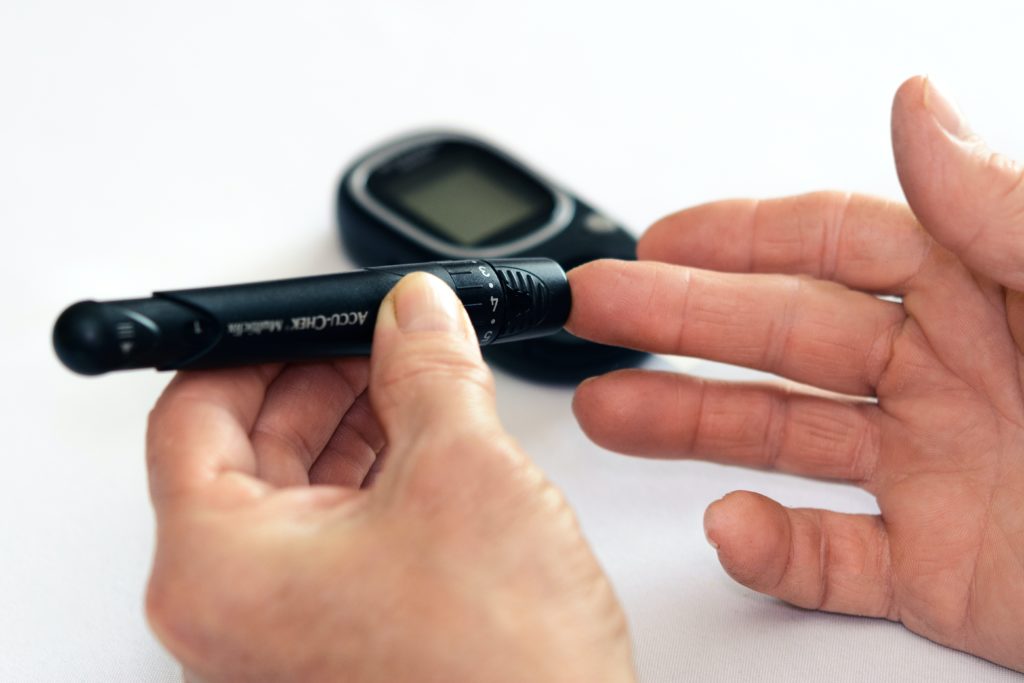Nighttime hypoglycemia is caused by various factors, from exercising too close to bedtime to drinking alcohol in the evening. If untreated, low overnight blood sugar levels can lead to headaches and loss of sleep — and in extreme cases, seizures or even death.
You may have these symptoms when your blood sugar has dropped below 70 milligrams per deciliter (mg/dL). When you have had diabetes for many years, you may not always develop symptoms of mild low blood sugar.
Some young children with diabetes cannot recognize symptoms of low blood sugar. Others can, but not every time. To be safe, the parents need to do a home blood sugar test whenever they suspect low blood sugar in a child.
Symptoms may include:
- Sweating (almost always present). Check for sweating on the back of your neck at your hairline.
- Nervousness, shakiness, and weakness.
- Extreme hunger and slight nausea.
- Dizziness and headache.
- Blurred vision.
- A fast heartbeat and feeling anxious.
These symptoms may go away shortly after you eat food that contains sugar.
Symptoms of moderate low blood sugar
If your blood sugar continues to drop (below 40 mg/dL), your behaviour may change. Symptoms may include:
- Inability to concentrate.
- Confusion and irritability.
- Slurred speech.
- Unsteadiness when standing or walking.
- Muscle twitching.
- Personality changes, such as anger or crying.
- Symptoms of severe low blood sugar
Symptoms of severe low blood sugar (usually below 20 mg/dL) include:
- Seizure.
- Loss of consciousness (coma).
- Stroke.
- Death.
Signs of low blood sugar at night
If your blood sugar drops while you are sleeping, your partner or other family members may notice that you are sweating and behaving differently. Signs of low blood sugar at night (nocturnal hypoglycemia) include:
- Restless Legs Syndrome.
- Making unusual noises.
- Attempting to get out of bed or accidentally rolling out of bed.
- Sleepwalking.
- Nightmares.
- Sweating.
You may wake up with a headache in the morning if your blood sugar was low during the night.
A useful first step towards preventing hypoglycemia is to test your blood glucose levels before bed. For people on two or more insulin injections per day can help prevent hypos overnight keeping blood glucose levels above 6.5 mm before going to bed.
If overnight hypos are suspected, carry out a test at 3 am. Together with a before bed and first thing in the morning test, this can help to understand how your sugar levels are behaving overnight.
If sugar levels are dropping too low overnight, you may need to adjust your insulin doses. Speak to your doctor if you need help with correctly adjusting your insulin.
The other way to prevent sugar levels from going too low is to take some carbohydrate before bed.
Hypos can also be prevented by:
- Ensuring your basal insulin dose is not too high
- Reducing your night time/evening long-acting insulin following exercise
- Taking carbohydrate before bed following an evening/night of drinking
- Not missing out on dinner or any snacks you would usually have
Concerned about your blood sugar and sleep? Join the (free) Diabetes Studies Program for comprehensive information and tests about your individual situation.


